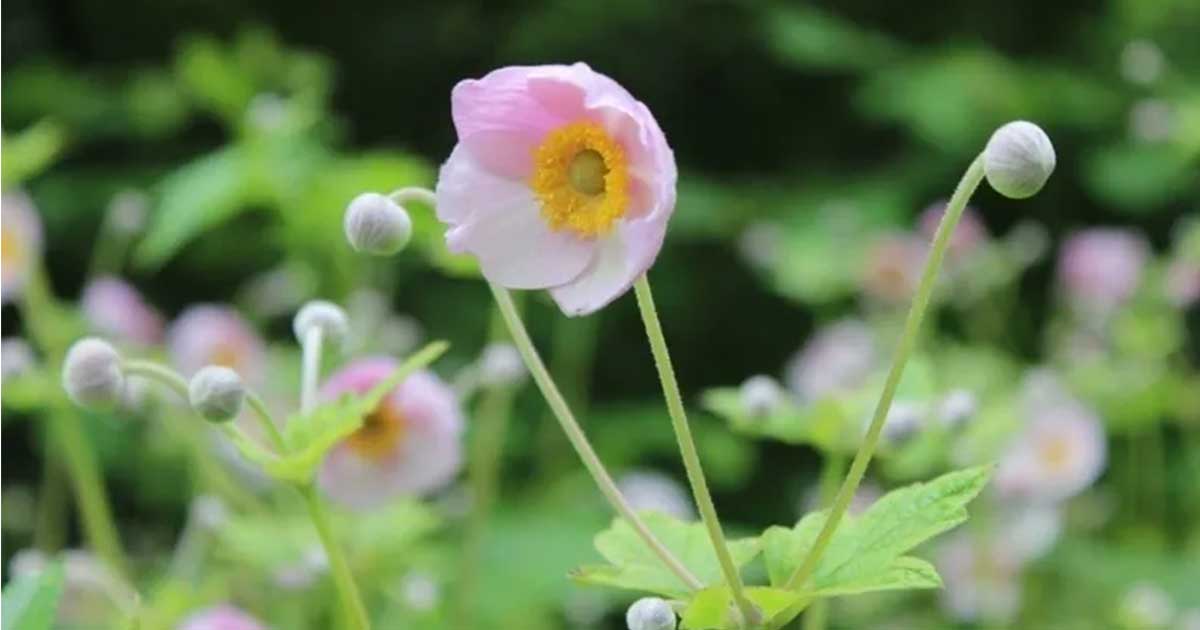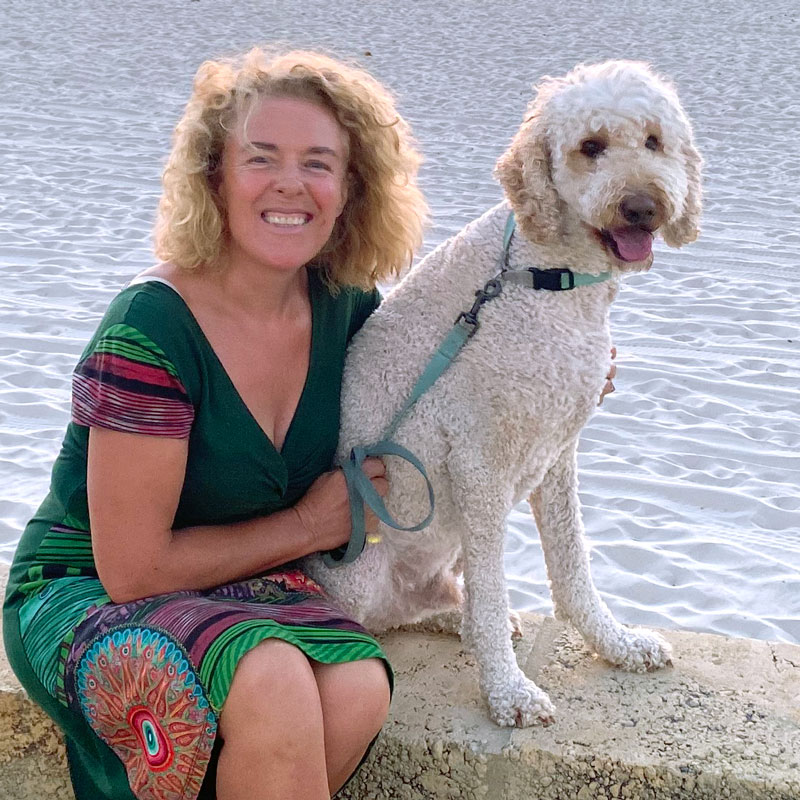I’ve recently lost my best friend. We were close for nearly 40 years and I thought I could never live without her. I have been hiding away with my pain since it happened on May 13th this year. I’ve battled with the grief and cried a million tears and only now feel able to properly come out and talk about it.
We first met in Cork in 1978, the year I started secondary school. I was finding it hard to fit in. I believed I was bad and unlovable because I was always getting into trouble. Nobody liked me; at least that’s what I felt. I had been through a traumatic experience when I was nine that had shaken my world and stole my trust in people.
It was in the front room, the only formal part of our house that was out of bounds to unsupervised kids. The Chesterfield sofa and the Victorian armchair were unmarked, kept that way for visitors. The dining table with its smell of fresh polish cried out to be covered in delicious dishes and the sleek chairs called for bottoms, any shape or size, eight of them.
It was one of those rare occasions when my parents had been entertaining and the French doors that led to the room were unlocked. The sun was setting and was casting shadows across the floor. Our meeting was accidental, everyone was leaving and my parents were seeing them to the door. I had an urge to sit on the plush wool carpet and soak up the last rays of sunlight before night fell and I was hunted off to bed. That first contact made me feel special, it filled me with warm, fuzzy feelings that I so badly needed at the time.
My parents would never have approved of such a liaison and so the years of subterfuge that ensued. Our encounters were few and far between in the early days of our relationship but were enough to reassure me that I wasn’t alone.
My trust in people didn’t grow much in the years that followed. I couldn’t wait to escape the grip my parents had on me. Throughout my troubled teens I made plenty of bad choices that compounded my belief that I was worthless. My friend was the only one who accepted me as I was and didn’t seem bothered by my mistakes.
In my twenties I became trapped in the dungeon of self-hate and became the victim of an abusive boyfriend who came close to destroying me. He had no problem with my friend being around, in fact, he really liked her. I was glad she was there as it helped me tolerate the abuse.
By the time I reached my thirties I had managed to free myself from the dungeon. I was enjoying an exciting career at a glossy magazine, interviewing Hollywood stars and going to endless parties. I never felt at home with the glitterati and the hangers-on. I could see right through the superficial niceness of people who just cared about status. But I felt buffered by my friend who was there by my side whenever I needed her. She understood me. She knew I was a deep person with a strong conscience and a wish to make the world a better place.
Becoming a parent in my forties was a shock to me and my friend. She knew she had to take a step back and let me get on with it for kids were not her thing. I threw myself into motherhood. I embraced it with all my heart. I loved the close bond I formed with my children when they were babies as they fed from my breast and gazed up at me with a look of innocence and vulnerability. Taking care of them was all-consuming.
In 2007, we moved to Singapore to live an expat life. We had only been there a few weeks when I was wandering through Vivo City, a shopper’s heaven, and who should I bump into? Yes, my long-lost friend. I quickly joined her in a quiet corner of a wine bar and we picked up where we had left off. On the day we were packing up to leave Singapore, my children were in a terrible accident that left us all very traumatised. I will write more about this separately. For now suffice to say that it catapulted me back to the dungeon of self-hate as I blamed myself for what had happened to my children. My friend helped me get through those days by just being there.
When we moved to Perth, Australia in 2010 she came too. That was when she really embedded herself into our lives. My husband entertained her but would have preferred if she wasn’t around as much. I struggled with loneliness during the early days in Perth so I was really glad that she was near. I hadn’t yet dealt with the trauma of what had happened in Singapore and it showed. I was very needy. I was relieved when my friend appeared in the evenings to help me get dinner ready. She never argued with me, only validated my loneliness and soothed my anxiety.
For nine years I hid my feelings away. Most evenings I would sit with my friend and lose myself in memories of times gone by as we listened to our favourite tracks. Every so often my anxiety would turn to anger. I never took it out on my friend. It was my husband who bore the brunt of it. I hated those moments more than anything, especially the next day when my kids would tiptoe around me.
I only ever went out at night if my friend came with me. If she wasn’t invited, then I didn’t go.
There was one time when I banished her from the house after we’d had a particularly awful evening. I told her I needed a break. I said don’t come back for one hundred days. I knew something needed to change in my life. I was desperately unhappy. One hundred days later I let her back in. I had proven I could be without her. Looking back now, I can see how I hadn’t really achieved anything. Yes, I could be without her, but I hadn’t actually lived my life without her. Instead, I had put my life on hold until she came back. I know this because I was even more miserable without her for the entire one hundred days.
On Mother’s Day this year the whole thing finally came to a head. What had started out as a celebratory lunch with free flow bubbles, love and adoration from my children, ended with an almighty fight. I was sitting with my husband enjoying a nightcap after a beautiful day when my friend started nudging in on our conversation. I grabbed her by the neck and dragged her outside. I had had enough of her, and I was in a rage. I smashed her against the back wall and stood aside as the red stains began to form all across the white painted bricks. My heart was racing, and my head was pounding. I watched as my best friend fell to pieces on the ground. I let out a huge cry of relief as I uttered these words:
Goodbye wine witch, and good riddance. You were never a true friend of mine. You robbed me of joy and peace by messing with the chemical balance in my brain and all you ever gave me was a false sense of security, a massive headache and a feeling of failure.
That was 140 days ago. Since then, I have freed myself of the shackles that bound me to the wine witch. I am no longer under her spell. I have come to accept the part I played in the relationship and acknowledge the void I was trying desperately to fill. Slowly I am filling that space with the new joy I am finding in the simple things in life. I love my children more than ever. My husband has joined me on this meaningful journey of sobriety and our relationship is more honest. I have become much more aware of my feelings, my struggles and have grown more compassionate towards myself and others. I have always wanted to be a writer and am now writing more. I am making self-care a priority in my life. The healing that was so badly needed from the start has finally begun.
What helped me to overcome the hold alcohol had on me was waking up to a number of facts about it. Alcohol is a neurotoxin. It is an addictive drug. Taken on a regular basis, we put ourselves at risk of developing an addiction to it. And that is what happened to me. I developed an addiction to alcohol. What I have also discovered is that by being addicted to alcohol I prevented myself from building connections with people. I have learnt that the opposite of addiction isn’t sobriety, but connection. I used alcohol to numb the pain of loneliness, but I also numbed the joy of life. Now in my sobriety I experience the gamut of feelings and am OK with this, although I will admit that I find it hard at times living in a society that promotes alcohol as a good thing.
Here I stand, at 53 years of age, honest and hurting but shame-free and compassionate. I have hope for the future because I believe that life is about learning to accept things about ourselves and having the courage to change the things we don’t like, so that we can be our best selves. And I am doing just that. I acknowledge the mistakes I have made and seek forgiveness for the hurt I have caused because of my lack of care. I embrace sobriety with an open heart and a desire to be more caring, compassionate and creative.
If you or someone you know would like to read more about my journey, then please join my mailing list as I will be posting regular updates and sharing my experiences along the way. Thanks for taking the time to read this.

